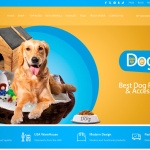Effective e-commerce strategies for social media marketing
- March 13, 2023
- Dropshipping

Hey there! If you’re running an e-commerce business, you know how important it is to market your products effectively to your target audience. And when it comes to online marketing, social media is a crucial channel that can help drive traffic and sales to your store. In this post, I’m going to share some effective e-commerce strategies for social media marketing that can help you increase your online visibility and conversions.

Effective e-commerce strategies for social media marketing
Choosing the right social media platforms
Before you start creating content for social media, it’s important to choose the right platforms that your target audience is using. For instance, if you sell products that are visually appealing, you might want to focus on platforms like Instagram and Pinterest. On the other hand, if you want to reach a broader audience and engage with them, you might want to consider platforms like Facebook and Twitter. Ultimately, the key is to identify where your audience is most active and tailor your social media strategy accordingly.
Building a strong social media presence
Once you’ve identified the right platforms, the next step is to build a strong social media presence. This involves creating a consistent brand voice and visual identity that resonates with your audience. You can do this by using the right tone and language in your posts, as well as choosing colors and imagery that reflect your brand. Additionally, you should focus on creating engaging content that captures your audience’s attention and encourages them to interact with your posts. User-generated content can also be a powerful tool for building social proof and trust with your audience.
Leveraging social media advertising
Social media advertising can be a highly effective way to reach your target audience and drive conversions. For instance, you can use Facebook and Instagram ads to target specific demographics and interests, or retarget customers who have abandoned their shopping carts. A/B testing your ad campaigns can also help you identify the most effective messaging and creative elements to use in your ads.
 Influencer marketing
Influencer marketing
Another effective strategy for e-commerce businesses is influencer marketing. By partnering with influencers in your industry, you can reach a wider audience and build trust with potential customers. When choosing influencers to work with, it’s important to select those who align with your brand values and can create content that resonates with your target audience. You can also measure the success of your influencer campaigns by tracking engagement and conversions.
Social media customer service
Social media can also be a valuable tool for providing customer service to your audience. By responding to inquiries and complaints in a timely and helpful manner, you can demonstrate your commitment to customer satisfaction and build loyalty with your audience. In addition, responding publicly to negative feedback can show that you care about your customers and are willing to take steps to improve their experience.
Measuring success and ROI
Finally, it’s important to measure the success and ROI of your social media marketing efforts. By tracking metrics like engagement, click-through rates, and conversions, you can identify which tactics are most effective and adjust your strategy accordingly. Additionally, tracking your ROI can help you justify your social media marketing budget and demonstrate the value of your efforts to stakeholders.
Conclusion,
Social media marketing can be a powerful tool for e-commerce businesses to drive traffic and sales. By choosing the right platforms, building a strong social media presence, leveraging social media advertising and influencer marketing, providing excellent customer service, and measuring success and ROI, you can create an effective social media marketing strategy that delivers results. Remember, the key is to continuously adapt and evolve your strategy based on data and analytics.

 Influencer marketing
Influencer marketing










